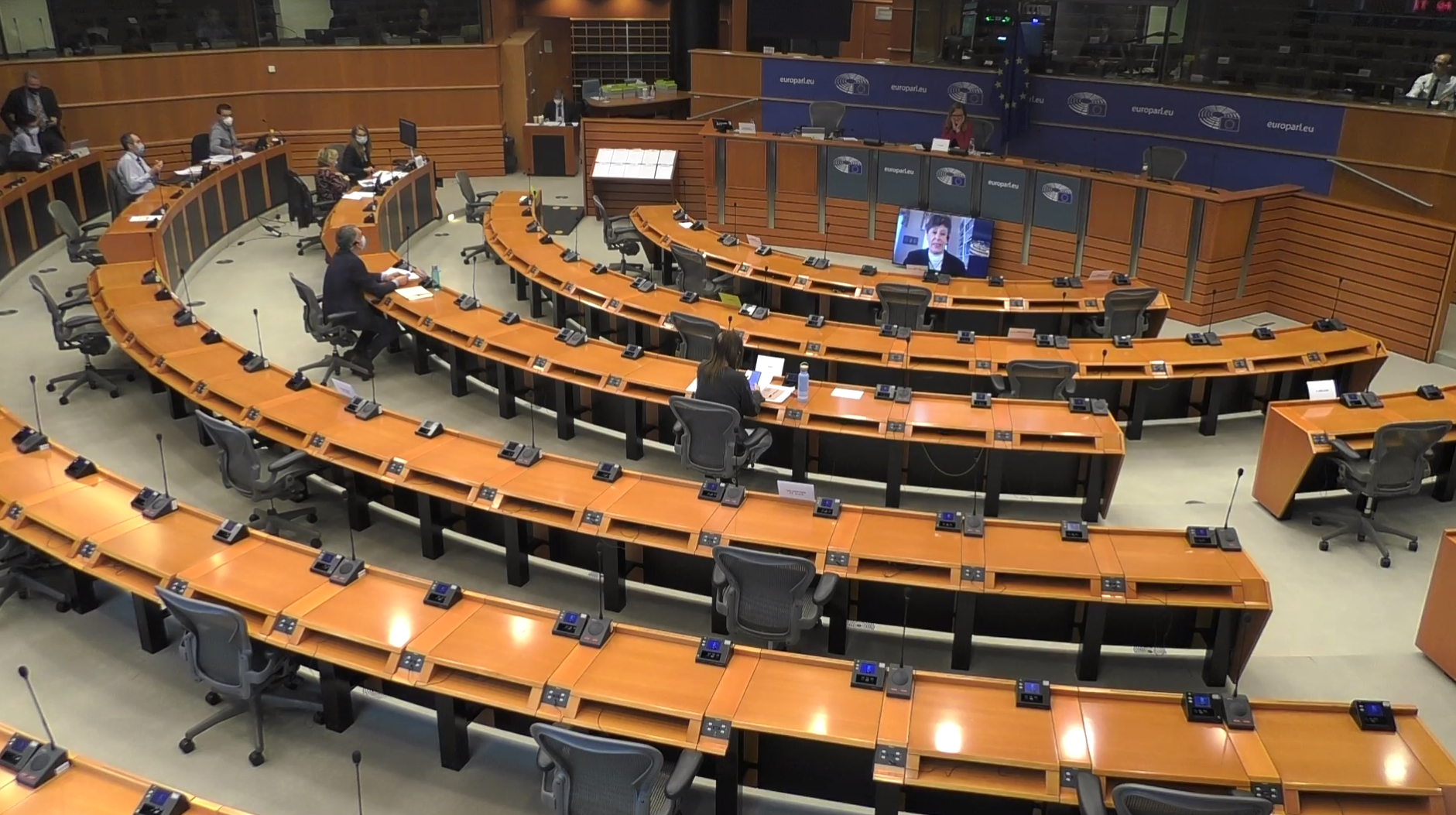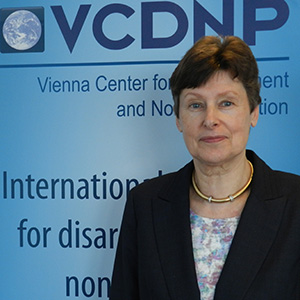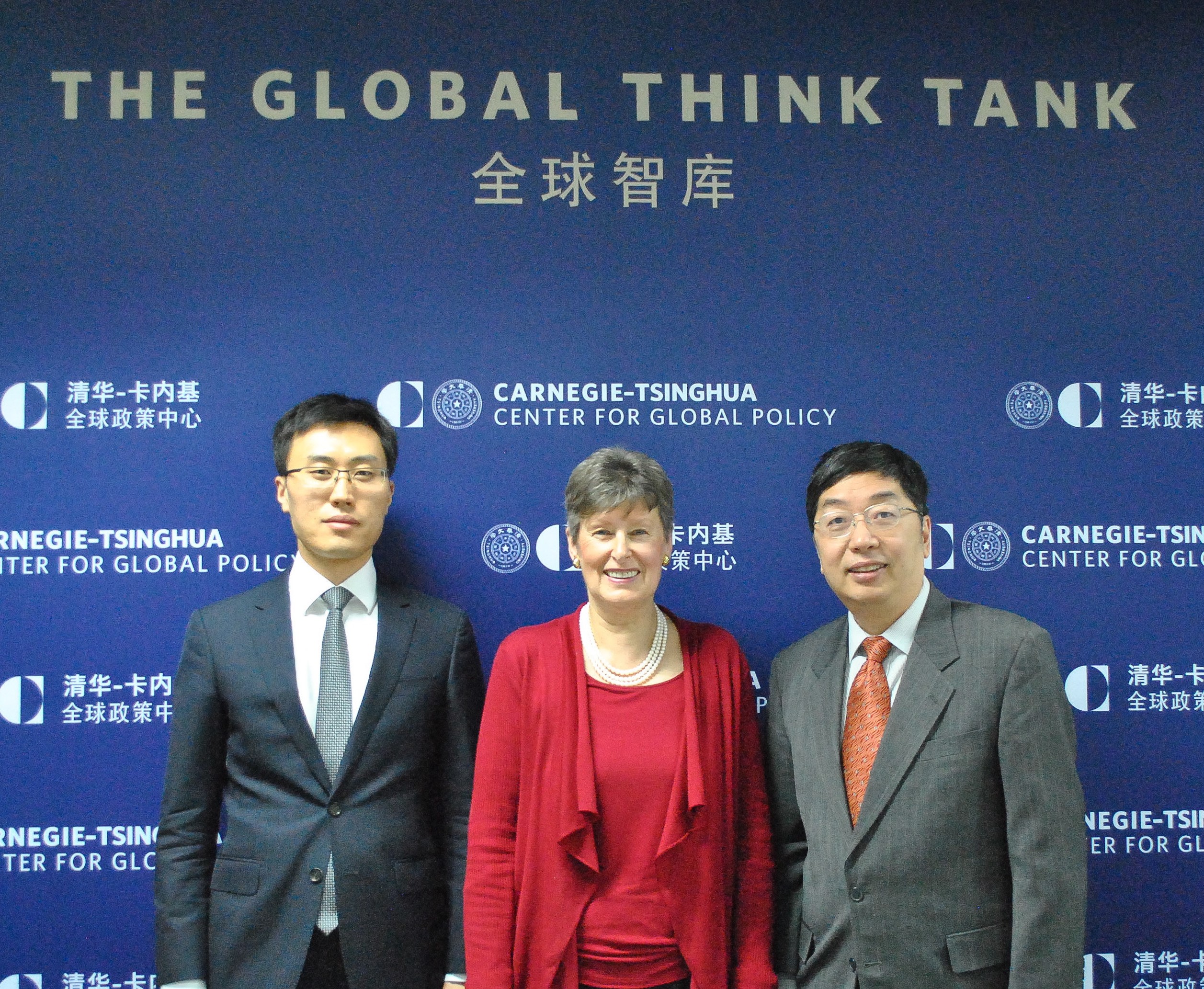
The 1975 Intermediate-Range Nuclear Forces (INF) Treaty was a landmark US-Soviet and later US-Russian agreement that eliminated all ground-launched missiles with ranges between 500 and 5500 kilometres, including both ballistic and cruise missiles. It did so without controversy until allegations of violations of the Treaty began to surface in 2014. In a different political climate, these accusations would likely have been quietly resolved, but the United States withdrew from the INF Treaty, effective in 2019, and Russia followed suit.
What does the collapse of the INF Treaty mean for Europe and what does the wider picture look like moving forward? These were the questions that VCDNP Senior Fellow Angela Kane addressed during her testimony to European Parliament’s Subcommittee on Security and Defence on 25 May 2021. Ms. Kane’s bottom line was that Europe and the world was a safer place with the INF Treaty in place. Without limits on intermediate-range missile deployment in Europe, Russia and others are free to place deeply destabilising missiles in range of Europe, and NATO has no offensive or defensive capabilities with which to respond in the short term.

More broadly, Ms. Kane noted that arms control is following a downward trajectory with Russia’s withdrawal from the Conventional Forces in Europe Treaty in 2015 and the impending demise of the Open Skies Treaty. All three of these treaties had value for Europe and Ms. Kane argues that European States should be more vocal in both these matters and in other issues such as North Korea’s nuclear weapons programme and the state of the Joint Comprehensive Plan of Action (JCPOA) with Iran.
She also said that European countries should increase pressure on the United States and Russia to pursue a follow-on treaty to the 2010 New Strategic Arms Reduction Treaty (New START), which was extended earlier this year until February 2026. Citing the chief US negotiator for New START, Rose Gottemoeller, Ms. Kane emphasised that it takes a large team of experts and a lot of time to reach a new agreement. This will be especially true for a follow-on treaty to New START, as the “muscle memory” of negotiations has faded after ten years of inactivity on arms control negotiations.
Despite these issues and other considerations related to the upcoming Review Conference of the Treaty on the Non-Proliferation of Nuclear Weapons and the first meeting of States Parties to the Treaty on the Prohibition of Nuclear Weapons, Ms. Kane argued that the missile issues are at the top of the list of priorities in arms control.

Contrary to 1987 when the INF Treaty was concluded, there are 31 countries that possess ballistic missiles today, and more countries are attempting to acquire them. They are sought after because of their utility against adversaries with formidable air defence systems when an attack with manned aircraft would be impractical or costly. However, they are also destabilising weapons and play a significant role in regional security dynamics.
In this regard, Ms. Kane identified negotiation of a treaty to address missile threats both in Europe and in other regions as the first priority. The question remains as to who would lead such an effort. Despite the downturn in US-Russian relations, Ms. Kane noted that the summit between Presidents Biden and Putin in June 2021 could be an opportunity to advance the missile non-proliferation agenda. She also reiterated her argument that Europe must become more involved in this discourse, along with NATO.
While Ms. Kane noted that a multilateral solution is the ultimate goal, she said that the efforts should nevertheless begin with the US and Russia, given the extensive experience between the two countries in bilateral arms control negotiations. In her conclusion, she also expressed the hope that this would be a strong recommendation in the Subcommittee’s report to be adopted later in 2021.



